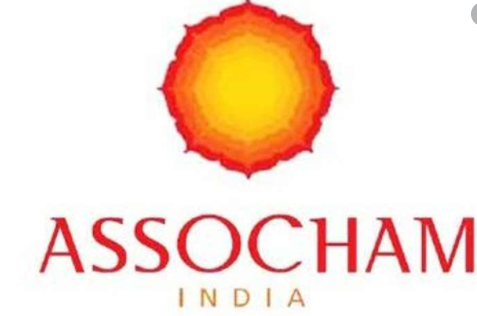
The Associated Chambers of Commerce and Industry of India (ASSOCHAM), one of the apex trade associations of India in association with ITC Sunfeast concluded the sixth edition of its Wisdom Series lecture titled ‘Interaction on Mumbai’s Model of Service Excellence‘ on the theme of ‘Aatmanirbhar Bharat – Vocal for Local – Moving towards Self-Reliant India’. The event saw an expert panel consisting of representative from Mumbai Dabbawalas Shri Ramdas Karvande, President, Mumbai Dabbawala, Shri Ulhas Muke, President, Mumbai Dabbawala and Shri Ritesh Andre, Spokesperson, Mumbai Dabbawala and Mr Anil Rajput, Chairman, ASSOCHAM FMCG Brand Promotion and Protection Council holding an insightful interaction on one of the best case studies on supply chain management.
Presenting their Model of zero-defect delivery, Mr. Ritesh Andre said, “The Mumbai dabbawalas constitute a lunchbox delivery and return system that delivers hot lunches from homes and restaurants to people at work in India, especially in Mumbai. The lunchboxes are picked up in the late morning, delivered predominantly using bicycles and railway trains, and returned empty in the afternoon. Mumbai Dabbawalas is made up of three word i.e. Mumbai (because we operate only in Mumbai) Dabba (Which means Tiffin Box) and walas (Person carrying the Tiffin Box)”.
Talking about the coding system that they are using, he said that “Lunch boxes are marked in several ways i.e. Abbreviations for collection points, Colour code for starting station, Number for destination station and Markings for handling dabbawala at destination, building and floor. A colour-coding system identifies the destination and recipient. They have a coding system and proper distribution flow to maintain their impeccable service. Multiple colours and alpha numerics are used to generate the codes for each lunchbox and takes 3-4 months to understand. The name of dabbawala receiving the lunch box the pickup and drop station code, the code for dabbawala delivering the lunch box the building code as well as the floor code is included in the whole code. There are different codes for the mumbai east and west areas meaning different codes for the similar station example VP and VLP are both station codes for Vile Parle station in mumbai. As per Columbia University, they are the founders of the hub and spoke system.
Various CSR activities are also being done by Mumbai Dabbawalas including “roti bank” and “share my dabba” that are engaged in feeding not only their customers but the hungry and the poor kids on street as well.
Mr Anil Rajput, Chairman, ASSOCHAM FMCG Brand Promotion and Protection Council while moderating the discussion presented insightful questions before the panellists to understand the various challenges they faced in day to day operations. “Mumbai dabbawala operation is widely recognized as an outstanding example of excellence in supply chain management. Supply Chain is an important part of every organization, to maximize customer value and achieve a sustainable competitive advantage. Intelligent coding system and use of bicycle, hand pulled cart as well as local train is what remarks the successful journey of an efficient time management to fall in line with six sigma quality service standards by the Mumbai Dabbawalas. The dabbawalas of Mumbai have proven that high degree of commitment and dedication can build a robust seamless logistics chain. Challenges like heavy monsoon, flood, terrorist attacks, did not deter their determination to service their end users.
";

.jpg)